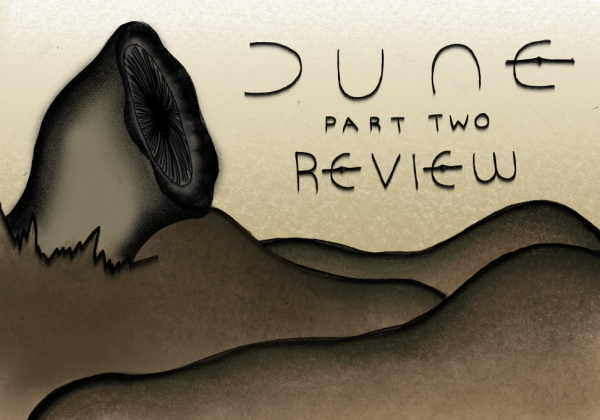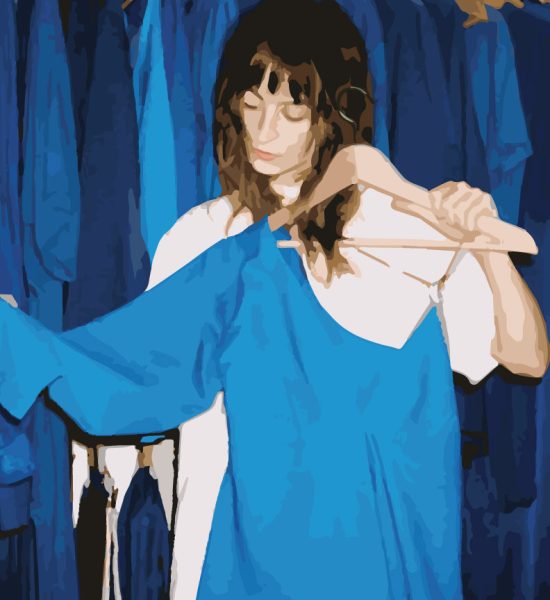Final Season of ‘Barry’ Wows Viewers
In May, HBO Max aired the eighth and final episode of the hit series Barry, bringing one of the best shows on television to a shocking, heart-wrenching, and perfectly fitting end.
Created by comedian and actor Bill Hader, who you may recognize from his tenured run on Saturday Night Live among other credits, the premise of Barry sounds like the set-up to a joke: A hitman, tired of killing people, signs up for an acting class and falls in love with one of his fellow students. Yet in the masterful hands of Hader and the show’s co-creator, Alec Berg, Barry has come to be so much more than can be summed up in a few sentences. Somehow a gripping action series, a deeply thoughtful critique of Hollywood and our society, an unbelievably clever and hilarious comedy, and so much more, Barry has cemented itself as one of the best shows in recent memory. Accumulating a myriad of accolades, including 44 Primetime Emmy nominations and nine wins, the show has captured critics’ hearts and the general public’s. Meaning, bringing the show to a good end would be quite the undertaking. However, I think the show managed to do it perfectly, creating an ending that was not only satisfying plot-wise but also stayed true to both the characters and what the show was about.
Barry follows the titular character, Barry Berkman, a retired hitman and aspiring actor as he attempts to outrun his past. The show’s other protagonists include Monroe Fuches who is Barry’s handler of sorts, Gene Cousineau who is his acting coach, NoHo Hank who is a member of a Chechen crime ring Barry gets involved with, and Sally, a fellow aspiring actor as well as Barry’s love interest. Over the past three seasons, we have seen Barry, and the people surrounding him go through a lot. Ranging from murder, first love, new relationships, auditions, big breaks, and backsliding into their old ways, these characters have changed over the course of the show. And as the characters have grown and evolved, so too has the overall tone of the show. What was once a perfectly balanced blend of comedy and drama has now veered sharply in the direction of a true drama. This switch in tone started becoming apparent in season three, but season four is arguably the darkest yet.
We pick up where season three left off: Barry is in prison having finally been arrested for the murder of Janice Moss (a cop, and Gene’s girlfriend who was killed by Barry in Season One). This is the same prison that Fuches ended up in last season. NoHo Hank and Cristobal are living together in Santa Fe and planning their next business venture. Gene is still struggling to find peace following Janice’s death and is unsure of how to handle the attention he’s getting from the press. And Sally, following the implosion of her career, has flown back to her hometown to live with her apathetic parents. Season four sees Barry on a path to some sort of redemption but ultimately further highlights what has been a running theme of the show: people prefer delusion to the truth. And this leads to another one of the show’s running critiques, this time that Hollywood media has an obsession with glamorizing violence and violent men. Barry has gone from a comedy to something of an epic, following its protagonists for close to a decade as Barry and Gene are unable to move past the murder of Janice Moss (a cop, and Gene’s girlfriend who was killed by Barry in Season 1). While Barry has a body count to rival that of any crime series, Janice’s death remains the driving force for much of the show’s plot, even three seasons and many years later.
Creator Bill Hader has said in past interviews that he didn’t want her death to be something that was easily glossed over and that he wanted to fully explore the effect that trauma like that can have on someone. And even now, in season four, that remains true. Gene has never fully recovered, and neither has Janice’s father, Jim Moss. Because Gene was never able to move on, neither will Barry, who views Gene as a father-figure of sorts. Barry truly loves Gene, though that love is often deeply convoluted and misguided. Beyond Janice, the show has continuously grappled with how the trauma of any kind—such as a violent death in the family, Barry’s P.T.S.D. from his time in the military, or the domestic abuse that his girlfriend, Sally, experiences in her previous relationship—could reverberate for years, spilling over into other aspects of the characters’ lives.
Ultimately, Barry is never able to take accountability for his actions. He lives in a guilt-fueled delusion he creates first for himself, then later (following an eight-year time jump) for Sally and their young son, John. Each episode of season four, all directed by Hader, allows the show to explore the limits of how capable each of these characters is of change. The show has been asking for years: How many choices make you a bad person? Can people truly change? And on the surface, it appears to take a rather cynical view of those questions. The show’s sensational finale strips most of these characters of their self-protective illusions and shows that none of them have changed, not for the better at least. NoHo Hank lost the love of his life because he wasn’t willing to fight for him and still refuses to accept that the death of his partner was his fault. Sally has been hurt by fame and by the industry time and time again, yet her ego and need for attention and validation have never truly gone away. Gene suffers from largely similar issues that negatively affect his relationship with his family and himself. And Barry lives a life full of guilt, violence, and gaslighting. He is only able to own up to his actions and make the decision to turn himself in within the last 10 seconds of his life before he is shot in the head by Gene, his final words being a very matter-of-fact “Oh, wow.”
Barry’s backdrops of show business and crime turned out to be incredibly ideal for the series’ exploration of the inconvenience of truth. After Barry is arrested and imprisoned for Janice’s murder (a heavily publicized occurrence), a movie about the hitman and the case—eventually called “The Mask Collector”—is announced. The prospect of the film is an important through-line in the fourth season, as it brings both Gene and Barry out of hiding — Gene to stop the movie, and Barry to kill Gene. Gene warns the studio executives proposing the film that “[they] are glorifying a psychopath, and [they’re] exploiting the memory of the woman [he] loved.” By the time the movie comes out, it turns out he was incredibly correct. Following Barry’s death, law enforcement has erroneously concluded that Gene was Janice’s true killer, and Barry was just a traumatized soldier manipulated into killing (an ironic parallel to Barry’s view of Fuches as his nefarious puppet master). “The Mask Collector” villainizes Gene and paints Barry as a patriot coerced into a life of violence. The finale concludes with Barry and Sally’s now-teenage son, John, watching the end of the film with tears in his eyes. Though Sally has told him the truth about her and Barry’s murder-filled past years ago, for the time being, it’s easier for John to believe the glamorized, heroic, Hollywood version of his dad.
Barry has always been a deeply compelling and entertaining portrait of deeply flawed people. None of the protagonists are good people and how they ended up the way they did is something the show continuously grapples with. Barry has left an indelible mark on television and has left on a high note with one of its most ambitious and introspective seasons yet. Rife with incredibly clever comedy, undeniably entertaining action, and thought-provoking critiques, and anchored by its complex characters, Barry is a show that is certain to stick with viewers for a long time past the roll of its final credits.

Class of 2026
I have always had a passion for writing and telling stories, and I am so excited to be working on press this year! When I’m...









